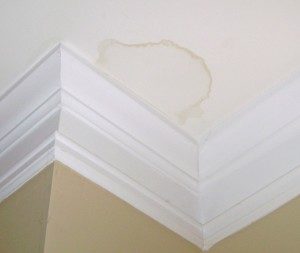Discover the Most Frequent Factors Leading To Water Leakage Within Your House
Discover the Most Frequent Factors Leading To Water Leakage Within Your House
Blog Article
What are your insights and beliefs on Common Water Leaks In House?

Leakages not just create waste of water yet can additionally create unneeded damages to your house as well as promote unwanted organic growth. Water leaks might go undetected given that many of the pipework in our house is hidden. By understanding and also looking for daily situations that cause leakages, you can secure your house from future leaks and unneeded damages. Today, we will look at 6 leakage causes that may be creating your pipes to drip.
Immediate temperature adjustments.
Severe temperature modifications in our pipelines can trigger them to broaden and also get unexpectedly. This expansion and also tightening may trigger splits in the pipelines, especially if the temperature are listed below cold.
Corroded water systems
This could be the reason of discoloration or warping on your water pipes. If our plumbing system is old, think about changing the pipelines since they are at a higher risk of corrosion than the more recent models.
Faulty Pipeline Joints
The factor at which your pipes link is regularly the weakest link in the waterline. Pipe joints can wear away gradually, leading to water leaks. The majority of pipeline joints are not conveniently noticeable. If you have loud pipelines that make ticking or banging sounds, specifically when the warm water is activated, your pipeline joints are most likely under a lot of pressure. It is recommended to have your plumber examine your system once a year.
Trespassing roots
Most water leakages begin outside your home rather than inside it. If you notice an abrupt decline in water pressure, say in your tap, require time to head out as well as examine your backyard. You could observe wet patches or sinkholes in your backyard, which might mean that tree origins are getting into water lines causing water to permeate out. You can have your plumber look for invasion, especially if you have trees or hedges near your home.
Poor Water Connectors
At times, a leak can be created by loose pipes and pipelines that provide your appliances. In situation of a water links leak, you may see water running directly from the supply line or pools around your appliances.
Blocked Drains
Obstructed drains may be annoying as well as inconveniencing, yet they can sometimes wind up creating an overflow leading to rupture pipelines. Keep eliminating any type of products that might go down your drains that can obstruct them to avoid such troubles.
All the above are sources of leaks yet not all water leakages result from plumbing leaks; some leaks may originate from roof leakages. All leaks ought to be fixed promptly to stay clear of water damages.
Leaks not only cause waste of water however can likewise create unneeded damages to your home and promote unwanted organic growth. By looking and also recognizing for day-to-day scenarios that cause leaks, you can protect your home from future leaks and unnecessary damage. Today, we will look at six leak causes that may be causing your pipes to drip.
At times, a leak can be triggered by loose hose pipes and pipes that supply your appliances. In case of a water connections leakage, you might see water running straight from the supply line or pools around your home appliances.
How To Check For Water Leak In Your Home
How To Check for Leaks
The average household's leaks can account for nearly 10,000 gallons of water wasted every year and ten percent of homes have leaks that waste 90 gallons or more per day. Common types of leaks found in the home are worn toilet flappers, dripping faucets, and other leaking valves. These types of leaks are often easy to fix, requiring only a few tools and hardware that can pay for themselves in water savings. Fixing easily corrected household water leaks can save homeowners about 10 percent on their water bills.
To check for leaks in your home, you first need to determine whether you're wasting water and then identify the source of the leak. Here are some tips for finding leaks:
Take a look at your water usage during a colder month, such as January or February. If a family of four exceeds 12,000 gallons per month, there are serious leaks.
Check your water meter before and after a two-hour period when no water is being used. If the meter changes at all, you probably have a leak.
Identify toilet leaks by placing a drop of food coloring in the toilet tank. If any color shows up in the bowl after 10 minutes, you have a leak. (Be sure to flush immediately after the experiment to avoid staining the tank.)
Examine faucet gaskets and pipe fittings for any water on the outside of the pipe to check for surface leaks.
Undetected water leaks can happen without the home or business owner even realizing. If you suspect a water leak, but not able to find the source. It is time to contact a professional water leak detection service, The Leak Doctor.
How To Find a Water Leak In Your Home
https://www.leakdoctor.com/blog/How-To-Check-For-Water-Leak-In-Your-Home_AE197.html

We hope you liked our section on How to detect water leaks in your home. Thank you so much for taking a few minutes to read through our article post. Make sure you take the time to share this write-up if you enjoyed it. Bless you for your time. Don't hesitate to check up our website back soon.
Immediate attention? Call. Report this page